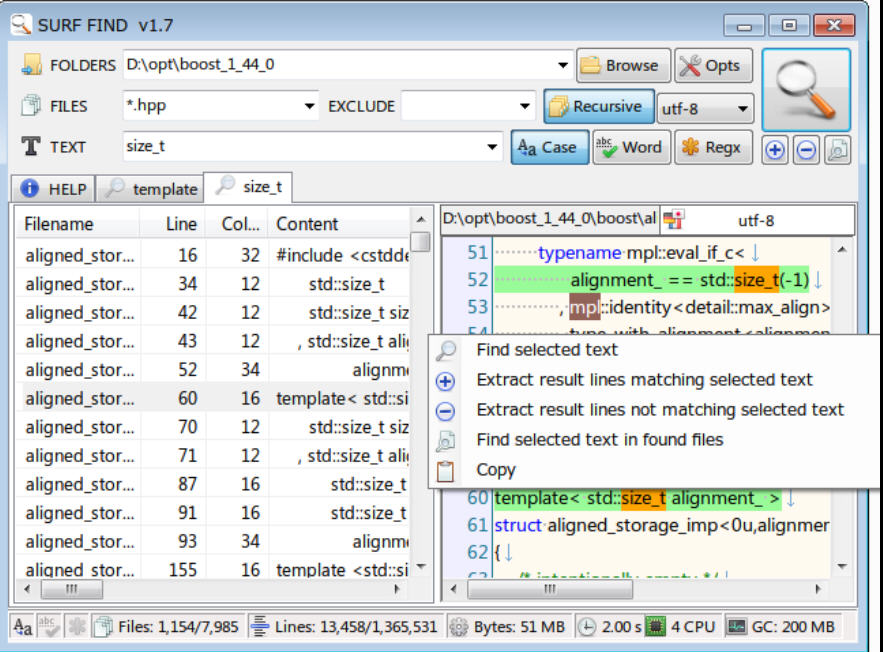The grep command provides access to the grep utility, a powerful file processing tool used to find patterns in text files. It has many practical use cases and is certainly one of the most used Linux commands. This guide illustrates some simple yet useful Linux grep commands that have real-world uses. Example File for Demonstration. May 05, 2020 Grep is a powerful utility available by default on UNIX-based systems. The name stands for Global Regular Expression Print. By using the grep command, you can customize how the tool searches for a pattern or multiple patterns in this case. You can grep multiple strings in different files and directories. GRCRTools – what is this? One time it used to be just a report converter, known as Grepolis Report Converter. Now it's not only a converter, but also a mighty tool called Grepolis Report Converter Revolution Tools, which improves the gameplay to such an extent, that nowadays many players can't imagine the game without it. 20 hours ago grep is a powerful command-line tool that is used to search one or more input files for lines that match a regular expression and writes each matching line to standard output. In this article, we’re going to show you how to exclude one or multiple words, patterns, or directories when searching with grep. DnGrep allows you to search across files with easy-to-read results. Search through text files, Word and Excel documents, PDFs, and archives using text, regular expression, XPath, and phonetic queries. DnGrep includes search-and-replace, whole-file preview, right-click search in File Explorer, and much more.

grep is a very powerful and useful tool used in Linux and Unix operating systems. It is mainly used to match and print specified text in given text files in different formats. grep also have subversions like egrep which will provide extended functionality like regular expressions. In this tutorial, we will learn how to download, install and use grep and egrep for Windows operating systems.
grep is a Unix or Linux tools provided as opensource. Hopefully, it is also provided for Windows operating systems and platform by GNU. We can download the grep setup file from the following page.
Or simply we can download from the following link directly. But keep in mind that when new versions have arrived following link will be absolute or old.
We will start the installation by clicking to the gre-2.5.4-setup.exe We can see that the current version of the grep we will install is 2.5.4.
This may require some Administrative privileges. So we will provide the Admin privileges by click Yes to the dialog box.
Below the Setup Start Screen of the GNU Grep
We will accept the license agreement by clicking I accept the agreement like below.
We will set the destination location to install grep where the default is C:Program FilesGnuWin32.

We will select the components we want to install. Full Installation will install both Binaries and Documentation otherwise we can select or deselect these components easily.
We will set the Start Menu Name for the GNU Grep like below.
Here are sme additional tasks like Creating Document Shortcuts in Start Menu Folder and Download Sources.

Now we can start the installation with the specified configuration. We will just click to the Install button like below.
Grep Tool Linux
As grep is a very tiny tool it will install quickly and we will see the following installation completed successfully screen.
Grep Tool Windows 10
As specified configuration the grep is installed to the C:Program FilesGnuWin32 under to the binary bin directory. In order call and use grep command from the MS-DOS or command line we need to add this path to the environment variables PATHvariable. We can also see the executable files named egrep, fgrep and grep in the following screen.
We set path different ways but the most practical one is using command line too setx like below.
Then we can check by opening a new command line or MS-DOS windows and run grep command like below.
We can see that grep command expects some option and file in order to work.

grep command in Windows is very similar to the Linux version. But we may need some helpful information about the usage and options. We can print help information with the --help option like below.
We can grep specified word or text just by providing the grep term and the file we want to grep. In this example grep term is ssh and the file we want to look is named config.txt. config.txt content is like below which is and ssh_config file from an Ubuntu box.
Cached
We will run the following command